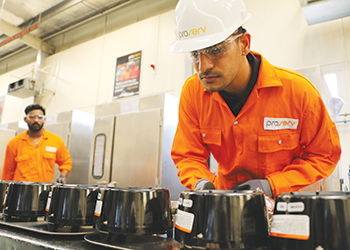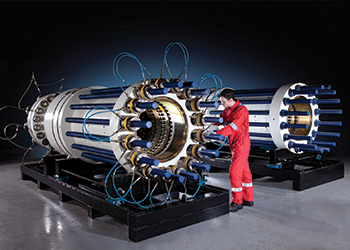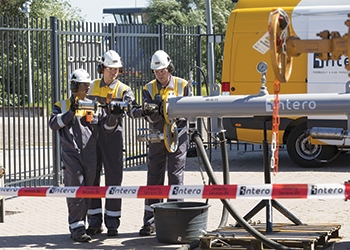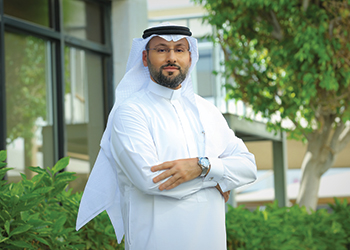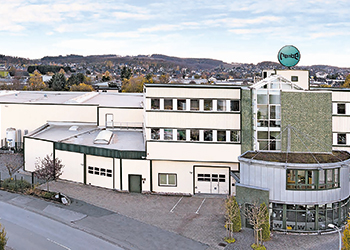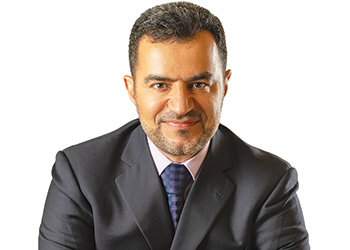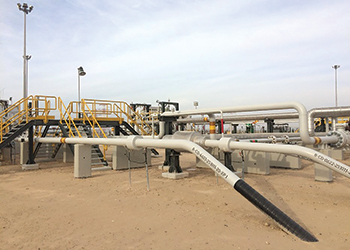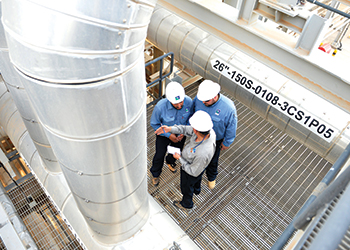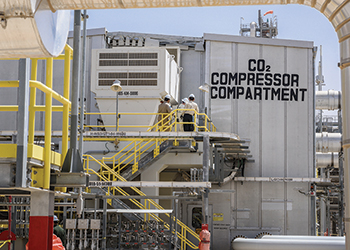
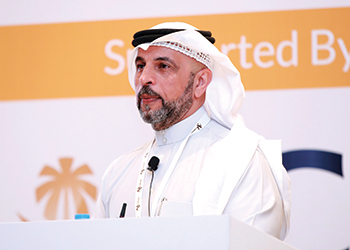 Al-Awwami ... promoting skills
Al-Awwami ... promoting skills
Anticipating a major shortage in the number of Saudi welders, Adnan Al-Awwami in this article suggests ways to promote the welding profession in Saudi Arabia and encourage the youth to pursue welding as a career
The oil and gas, petrochemical, construction, manufacturing and other welding related industries are experiencing severe shortage in the number of qualified welders.
According to data in welding literature and industry experts, there is only one apprentice and qualified welder joining the welding workforce, for every two senior and skilled welders retiring. This is an alarming reality because the scarcity of qualified welders creates a bottleneck in the growth of various industries, specifically the oil and gas and petrochemical industries.
By the same token, a smaller workforce reduces productivity and competency and this results in project delays, decrease of the maintenance quality, and messing up the turnaround and/or shutdowns schedules, resulting in huge money loss and serious safety risks. Consequently, this will impair the economy and development of many countries and primarily of oil-dependent ones such as Saudi Arabia.
In Saudi Arabia, we rely mostly on foreign welders as the main welding workforce. Relying on non-local welders is certainly a risk for our economic development and national vision, especially if we are not able to sustain bringing in foreign welders, and this may happen soon because of some various reasons.
 |
The welding trade should be promoted in school |
First, many expatriate welders are currently favouring working in their home countries, where they are paid well compared to here. Second, some countries that have been supplying the bulk of skilled labour, such as India, are planning major additional investment in their steel making industry and this will definitely shrink dramatically the number of Indian skilled welders working overseas. Third, the new and changing governmental labour regulations make it expensive to recruit expat welders, and this definitely has had its impact.
The aforementioned factors require some thought and need solutions to overcome the upcoming welding crisis by developing our own Saudi welders. But how?
We are not only suffering major shortage in the number of Saudi welders, but also face challenges encouraging the youth to pursue welding as a career. Based on my involvement for more than 30 years with the local and international welding and fabrication industries, here are some suggestions to promote the welding profession in Saudi Arabia:
• The influence of social media on employment: One of the foremost difficulties that arise concerning the lack of interest among the younger generation in pursuing professions such as welding is the level of awareness, attention, and publicity that accompany this trade. The welding profession here has a universally non-existent societal image that indisputably and unavoidably has recognised it as a "low-profile profession".
Constructive advertising and endorsements are great approaches that would showcase welding as an esteemed and imperative profession. There are numerous ways to introduce welding positively in the media thus raising awareness about the career.
Social media platforms such as Facebook, YouTube, Twitter, Blogs, LinkedIn, Instagram, and so on are major influences in today’s digital media age. Moreover, they are a great platform for conveying opinions and even shifting people’s behaviours. These platforms can be used to fascinate the younger generation into pursuing welding, by showcasing the multiple benefits this career has to offer, as well as highlighting stimulating projects or successes welders have accomplished. The use of social media to indicate the increasing employment rate in the welding industry can demonstrate the importance of this specialty as well as terminate the negative social image welding has in our communities.
• Introducing welding earlier in high school curriculum: Promoting the importance of the welding trade should start at the tenth grade because it will give students, especially the more ‘hands-on’ students, viable career path outside of STEM (Science, Technology, Engineering and Mathematics) subjects. For example, academic specialties awareness campaigns are one of the approaches to educate students on welding as a flourishing and high paying career (a welder’s average wage is $20-$45 per hour depending on his level of qualifications and skills). In addition, I recommend conducting a summer vocational training programme in polytechnic institutes and technical colleges, where high school students receive welding training and potential co-op placements with construction contractors. This might also be motivating for some students to choose welding as a profession and career. Moreover, integration of students in the workforce may also serve as a temporary solution to fill in the shortage of welders in the market.
Another option that may motivate the trainee students to be part of the welding world is to allow them to participate in small welding projects, such as welding a furniture piece or a sculpture, and hence allowing them to reflect on what they have learned results in something useful which they are proud of.
• High paying salaries and enticements: Welding is a profession that requires strength, persistence, resilience, and skills. High school students, who are not keen to continue their college education, tend to avoid welding and look for alternative jobs that provide more comfort and prestige. Preconceptions about welding can quickly change when it becomes apparent that welding is in fact a high paying job that also plays a major role in various industries (for example, automobile, aerospace, transportation, etc).
Good salaries and attractive benefits and bonuses are great incentives towards building eagerness in the younger generation towards selecting welding as an occupation. In addition to respectable wages, contractors can introduce various incentives such as providing welders with daily bonuses. These daily bonuses should be granted to every welding production the welder finishes above the average daily amount. Daily bonuses will encourage welders to come back to work the next day and continue to succeed because then they would love and enjoy their job. Furthermore, this also inspires the less performing welders to work at a faster rate to uphold a high-performance level. The higher the incentive to get the work done, the greater the outcome.
• Better career opportunity: Welding as a profession applies to numerous industries and helps one pursue various career tracks. As welders gain experience and become more skilled, they can pursue other relevant career opportunities and become a welding instructor or supervisor, quality control technician, welding inspector, or nondestructive testing technician. In addition, a welder with a high school degree can even go back to college and graduate as a welding engineer. This is especially notable because welding engineers with a background in welding are more competent when troubleshooting welding problems.
In addition, some of the extremely skilled and creative welders can change their careers to artistic welding to make sculptures, furniture, art shapes, and so on. These types of jobs serve as a great opportunity for the welder to start a business and prosper economically. Moreover, other welders may also open their own shops where they can repair broken tools and equipment.
Welders have a significant variety about where they can take their career, which makes it an appealing profession. It is worth mentioning there are many people that started their careers as welders and then by going through developmental and training assignments became executives and key figures of major welding companies.
• High job availability: Industry experts proclaim on a regular basis, regardless of the status of the job market, the demand for welders remains high. Over the years, it has been evident that majority of welders secure long-term contracts and jobs because of the precious service the welder is providing. If the construction market is down, then other markets such as industrial plants’ maintenance, pipelines installations and shipbuilding and repair attract the welders. There is a very low chance that a welder be unemployed because of the high demand placed on this profession.
Welders can also travel abroad to work in other countries to fulfil the shortage of welders in the destination country. For example, the US was forced to use Chinese welders to execute the primary sections of Bay Bridge between San Francisco and Oakland in California. A California State official stated: "US companies would not have been able to complete the work that was let out to China on time, in part due to a shortage of welders."
In addition, Chinese welding firms were also subcontracted to fabricate or renovate other bridges (for example, Alaska Bridge and New York Bridge). This issue indicates how shortage of welders has forced the No 1 industrial country in the world to plead to its No 1 economic contender to execute strategic projects.
In conclusion, I believe that we must have full independence and sufficiency in various fields; most importantly the vocational professions such as welding in order to build a strong economy. In order to better promote the welding profession, a combination of enhancing and creating the opportunity for the specialty to arise, improving the salary and incentives, and endorsing it academically for high school students will play a major role in achieving that desired independency and sufficiency. The big question is, "do we have a competent welding training programme to qualify local welders for the future?" You will find the answer in my future article ‘Improving the welding training in Saudi Arabia’.
• Adnan Al-Awwami is an ex Saudi Aramco and Sadara projects welding engineering consultant. He holds a BS degree in Mechanical Engineering from University of Portland and has more than 30 years of experience in the oil and gas and petrochemicals industries. In January 2015, he established Industrial Solutions Engineering Consultations (ISEC) that specialises in Welding and Materials engineering consultations. Al-Awwami was appointed by the American Welding Society (AWS) as its international consultant in the GCC, and later covering the Middle East.












































































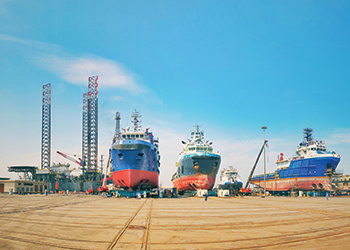
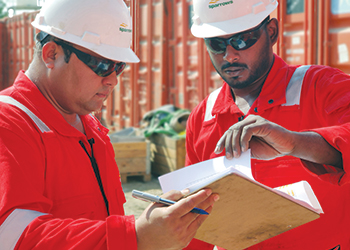

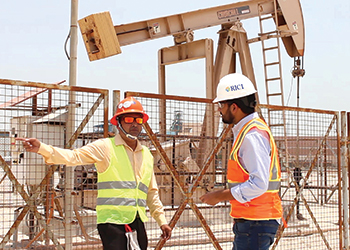

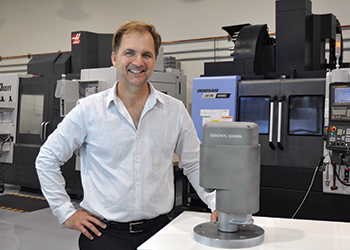


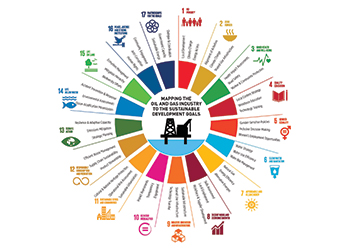

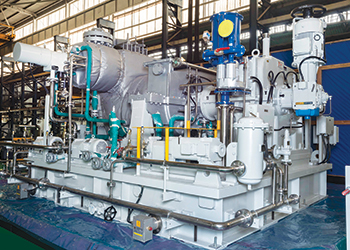
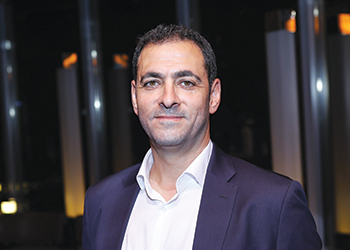
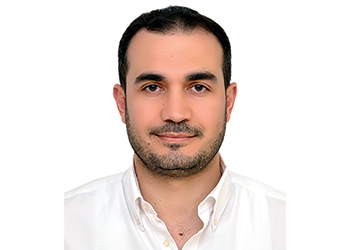
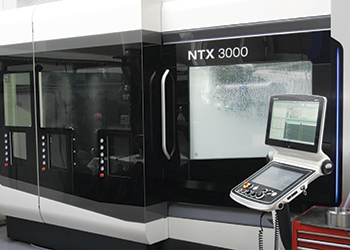


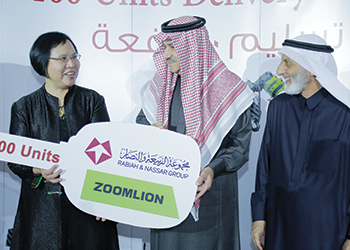
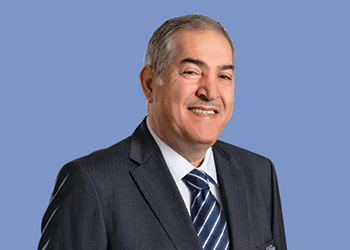
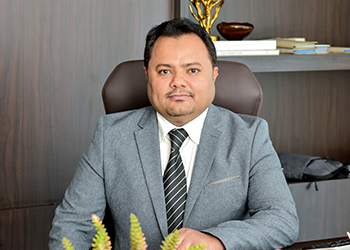

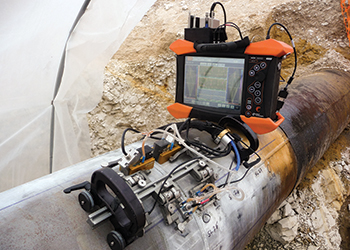
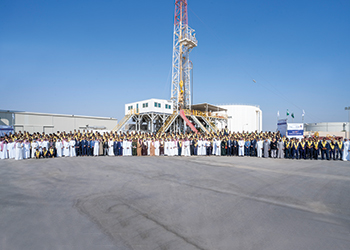

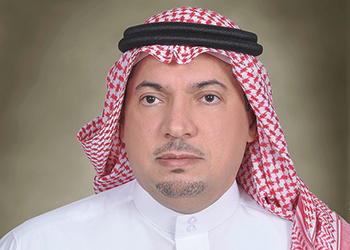
.jpg)
